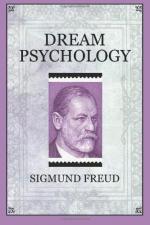Perhaps we shall now begin to suspect that dream interpretation is capable of giving us hints about the structure of our psychic apparatus which we have thus far expected in vain from philosophy. We shall not, however, follow this track, but return to our original problem as soon as we have cleared up the subject of dream-disfigurement. The question has arisen how dreams with disagreeable content can be analyzed as the fulfillment of wishes. We see now that this is possible in case dream-disfigurement has taken place, in case the disagreeable content serves only as a disguise for what is wished. Keeping in mind our assumptions in regard to the two psychic instances, we may now proceed to say: disagreeable dreams, as a matter of fact, contain something which is disagreeable to the second instance, but which at the same time fulfills a wish of the first instance. They are wish dreams in the sense that every dream originates in the first instance, while the second instance acts towards the dream only in repelling, not in a creative manner. If we limit ourselves to a consideration of what the second instance contributes to the dream, we can never understand the dream. If we do so, all the riddles which the authors have found in the dream remain unsolved.
That the dream actually has a secret meaning, which turns out to be the fulfillment of a wish, must be proved afresh for every case by means of an analysis. I therefore select several dreams which have painful contents and attempt an analysis of them. They are partly dreams of hysterical subjects, which require long preliminary statements, and now and then also an examination of the psychic processes which occur in hysteria. I cannot, however, avoid this added difficulty in the exposition.
When I give a psychoneurotic patient analytical treatment, dreams are always, as I have said, the subject of our discussion. It must, therefore, give him all the psychological explanations through whose aid I myself have come to an understanding of his symptoms, and here I undergo an unsparing criticism, which is perhaps not less keen than that I must expect from my colleagues. Contradiction of the thesis that all dreams are the fulfillments of wishes is raised by my patients with perfect regularity. Here are several examples of the dream material which is offered me to refute this position.
“You always tell me that the dream is a wish fulfilled,” begins a clever lady patient. “Now I shall tell you a dream in which the content is quite the opposite, in which a wish of mine is not fulfilled. How do you reconcile that with your theory? The dream is as follows:—
"I want to give a supper, but having nothing at hand except some smoked salmon, I think of going marketing, but I remember that it is Sunday afternoon, when all the shops are closed. I next try to telephone to some caterers, but the telephone is out of order.... Thus I must resign my wish to give a supper."




